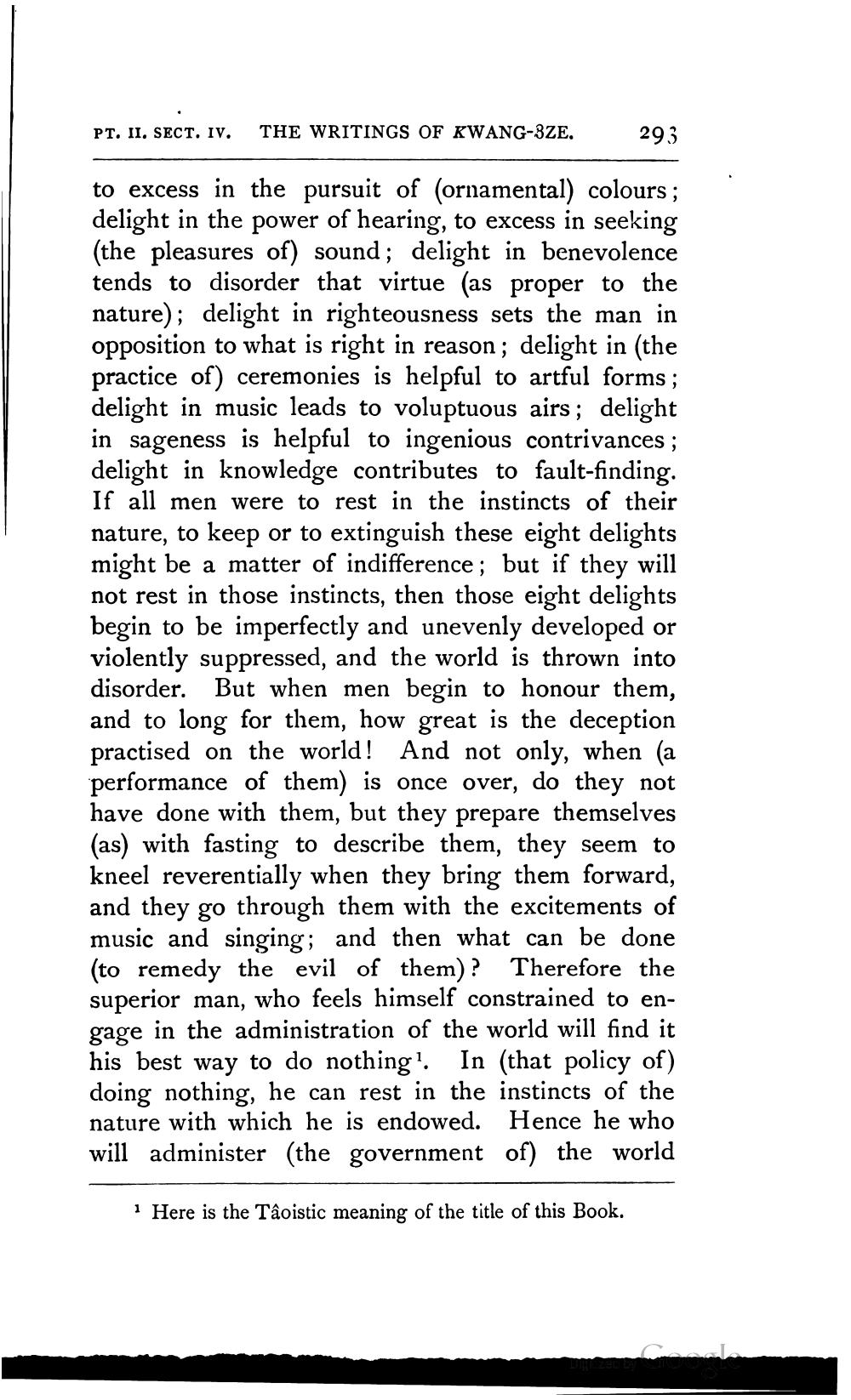________________
PT. II. SECT. IV. THE WRITINGS OF KWANG-3ZE.
293
to excess in the pursuit of (ornamental) colours; delight in the power of hearing, to excess in seeking (the pleasures of) sound; delight in benevolence tends to disorder that virtue (as proper to the nature); delight in righteousness sets the man in opposition to what is right in reason; delight in (the practice of) ceremonies is helpful to artful forms; delight in music leads to voluptuous airs; delight in sageness is helpful to ingenious contrivances; delight in knowledge contributes to fault-finding. If all men were to rest in the instincts of their nature, to keep or to extinguish these eight delights might be a matter of indifference; but if they will not rest in those instincts, then those eight delights begin to be imperfectly and unevenly developed or violently suppressed, and the world is thrown into disorder. But when men begin to honour them, and to long for them, how great is the deception practised on the world! And not only, when (a performance of them) is once over, do they not have done with them, but they prepare themselves (as) with fasting to describe them, they seem to kneel reverentially when they bring them forward, and they go through them with the excitements of music and singing; and then what can be done (to remedy the evil of them)? Therefore the superior man, who feels himself constrained to engage in the administration of the world will find it his best way to do nothing1. In (that policy of) doing nothing, he can rest in the instincts of the nature with which he is endowed. will administer (the government of) the world
Hence he who
1 Here is the Tâoistic meaning of the title of this Book.




